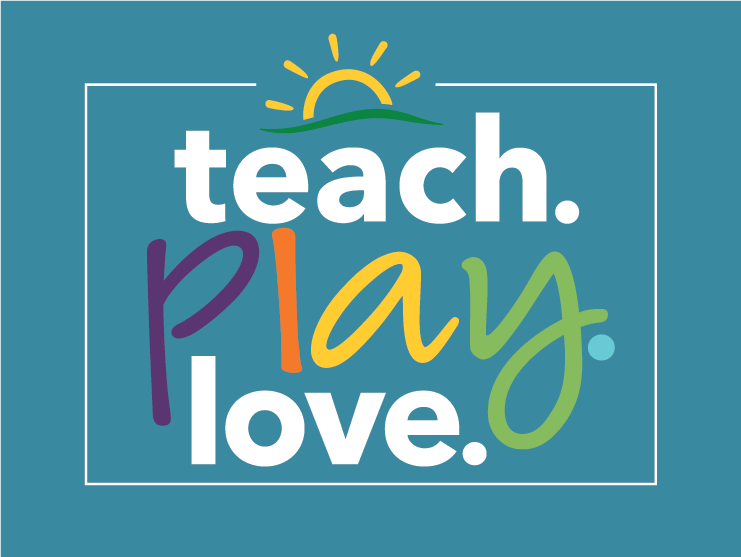“Don’t kick me.”
“He’s making faces.”
“She’s looking at me!!!”
“Stoppppp itttttttt!”
Sound familiar? You may just be a parent of siblings.
Raising siblings has wonderful benefits, however many parents of siblings may agree that it can feel more like refereeing than parenting; and yes, the seemingly never-ending conflict may feel absurd. Believe it or not, there’s a reason sibling rivalry occurs and an upside to all the back and forth.
What is sibling rivalry
Sibling rivalry is a natural occurrence and one that will ebb and flow throughout different stages of your child’s development. As young children navigate the world, they do so in a naturally self-centered way; lacking the ability to take another’s perspective, not yet effectively able to share or take turns, and exploring through cause and effect. Pair this unrefined skill set with another child (or two or three) who also have yet to master this, and there will undoubtedly be some disagreements that arise, fights that ensue, and big feelings that surface.
The upside of sibling rivalry
So, you may be wondering ‘where is the upside?’
“There [are] emotional competencies that come from sibling relationships,” our Chief Academic Officer Rachel Robertson said on her podcast “Teach. Play. Love.” Think of it as a controlled experiment. Children, Rachel says, are little scientists who learn by testing things out, and what better way to test interpersonal relations than by pushing someone else’s buttons? Now, add in the freedom of sparring with a playmate who can never pack up their toys and go home, and you’ve got what Rachel calls a free-reign experiment where you don’t have to hold back.
Still, as parents, it’s one thing to know there’s an upside to the sibling rivalry, and another to stay centered when the latest round of “Am not! Are too!” is firing up in the next room. For a rundown on all the benefits of siblings, Rachel and Claire, co-hosts of the “Teach. Play. Love” podcast, both recommend Siblings Without Rivalry: How to help your children live together so you can live too by Adele Faber and Elaine Mazlish, a resource that has guided multi-child families since it was first published in 1972. Here are a few things parents can do to help budding sibling relationships grow, while supporting the development of essential life skills.
Tips for managing sibling rivalry
- Let them fight their battles: True, enforcing détente may seem like the shortest path to peace (or at least quiet). But that denies siblings the opportunity to figure it out themselves. Those negotiations are where real strides are made, not just on the home front, but for the future: learning how to advocate for oneself, how to learn from others and even how to walk away. To the extent possible, breathe, stand back, and let their budding emotional regulation take its course. But…
- Don’t let things go kaboom: A shouting match in the next room may mean it’s time for diplomacy. “You have to pay attention to the level of escalation,” says Claire. But even then, tread lightly. You don’t want to solve it for them, says Claire. “You just want to break things up enough to reopen communication.” Allow each child to (calmly) tell their side of the story. Help them name emotions. Ask them how they think they can solve this. “You don’t want to let things explode,” says Claire.
- Resist taking sides: Assigning blame can feel productive, but it can also create and reinforce dynamics that stoke competition, and that can be antithetical to long-term sibling harmony. But…
- Do address behaviors: Being Switzerland doesn’t mean giving children a free pass. It just means being artful. If you must take on a tricky behavior, says Claire, do it privately and avoid comparisons that can inadvertently backfire on budding sibling bonds. “Do all you can,” says Claire, “to not say things like, ‘Why can’t you be more like your sister?’”
- Act quickly on physical escalation: Conflict that escalates to DEFCON 1 – hitting, pinching throwing things -- may require physical intervention: separation, deep breaths, mindfulness. It’s not punitive, but rather an opportunity to reset the conversation. “There’s not a lot of learning that happens from a traditional timeout,” says Rachel. Taking a break, cooling down, or reading a book, on the other hand, can decrease the emotional intensity enough to have a productive conversation.
- Don’t forget to shout out the good stuff: Mediating arguments is sanity saving. But don’t forget the positive reinforcement, too. Notice cooperative play. Congratulate sharing. Be specific with praise. “Say, ‘I noticed you two really had a fun time with that chalk. I love what you created,” says Rachel about seeing children playing well together. “When you see a sibling pick up a spoon the toddler dropped, say, “Wow, I just noticed you helped your little brother.’”
As you navigate this charged pathway, know that the children are building bonds as well as character. There’s no template for how sibling relationships will turn out in adulthood. But there’s nothing like a pal who’s always going to come back, no matter how many times you argue about who’s rubber and who’s glue.
Brother and sister relationships
Brother and sister relationships come with unique challenges and benefits. Gendered expectations can lead to power imbalance. Different social circles and communication styles can create gaps in shared experiences and understanding, while competition for parental attention may fuel sibling rivalry.
Despite these challenges, brother and sister relationships offer significant benefits. They provide perspective diversity, exposing siblings to different viewpoints and experiences. Older brothers can offer a sense of security, while sisters provide emotional support and understanding. These relationships also serve as positive role models, teaching valuable lessons about relationships and social interactions. A strong brother and sister relationship can be a source of lifelong support and friendship, just like any other sibling relationship.
Interested in more parenting tips? Visit our Early Education hub for more resources and support.
If you’re ready to see how Bright Horizons can be the right fit for your family, we invite you to schedule a tour or learn more about the programs today.





